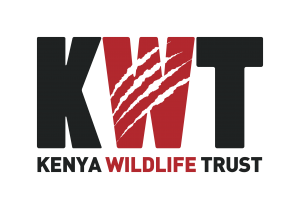Wangari Maathai’s Nobel Legacy Ignites Youth-Led Sustainability at the Africa Climate Summit 2023
Written by Gloria Kosgey
Wangari Maathai was the first African woman to receive the Nobel Peace Prize. In her acceptance speech, she stated:
“I would like to call on young people to commit themselves to activities that contribute toward achieving their long-term dreams. They have the energy and creativity to shape a sustainable future. To the young people, I say: you are a gift to your communities and, indeed, the world. You are our hope and our future.”
These words were echoed in the first inaugural Africa Climate Summit this week at the Kenyatta International Convention Center (KICC)-Nairobi, Kenya, where youth-led action shone its beacon of sustainability. Discussions agreed on the need for transition plans to translate to committed and actionable giving to help meet sustainable development goals in developing countries. This, as seen at KICC can be accelerated by youth involvement, however, the rate of progress that is needed to engage them under a changing climate is still far slower partly due to the inaccessibility of leaders and a need for improvement in leadership.
If this gap is to be closed, leaders must commit to investing fairly in the youth’s empowerment, financial support, training, and continuous open dialogue.
KWT is actively engaged with the Kenyan youth through its Conservation Leadership Program which is raising Kenya’s next homegrown conservationists. The Conservation Leadership Program champions career opportunities for Greater Mara, Amboseli/Tsavo, and Samburu/Laikipia youth. It aligns itself with the Africa Climate Summit 2023 theme: ‘Driving green growth and climate finance solutions for Africa to the world’ by offering education financial support to both young men and women in these areas to study conservation-related courses. It is through this financial investment, that they access opportunities to contribute towards the long-term preservation of Kenya’s precious ecosystems.
Ms. Veronicah Simaloi- a CLP beneficiary- attended this week at the ACS23 where she fully immersed herself in the global dialogue and efforts for climate action.
“I am a representative of the indigenous young women in Amboseli. I hope the summit will actually address the needs of youth and women in conservation and financially aid them to restore their degraded land from climate change. I wish for nothing more than increased opportunities for people living with wildlife.”
Additional to this is the mentorship training of our Conservation Leadership Program beneficiaries in starting and running green projects. This green initiative is now creating a climate-positive community by focusing on a blend of academic and professional, theoretical and practical aspects, to address the interests of beneficiaries in combating climate change. In 2023, 3 green projects were started by 21 beneficiaries at the Wildlife Research Training Institute, Naivasha.
- Group Name
- Green Project
- Participants
- Objectives
- Evergreen
- Tree nursery
- 7
- -Understand the importance of tree nurseries in conservation efforts.
-Learn techniques for setting up and managing a tree nursery.
– Demonstrate knowledge of tree monitoring and nurturing practices.
- Conservation Ambassadors
- Conservation of buffaloes
- 7
- – Conduct a buffalo census to gather data on population and distribution.
– Implement tree-growing initiatives to restore and enhance buffalo habitats.
– Remove invasive species to protect the buffalo’s natural environment.
– Raise awareness about the importance of buffalo conservation in the local community.
- Wanderlust Conservation
- Conservation advocacy
- 7
- – Raise awareness about wildlife conservation through advocacy programs.
– Educate the community on the value of preserving natural habitats for wildlife.
– Promote responsible tourism and ethical practices among visitors.
Examples such as these and the many brilliant initiatives showcased at the summit highlight that there is no shortage of ideas from, of, and by the youth in Africa.
They just need someone to: respond to them, believe in them, support them, and invest in them.
Donate
You can now support any Conservation Leadership Program’s green initiatives by sponsoring or donating to a project of your choice.








